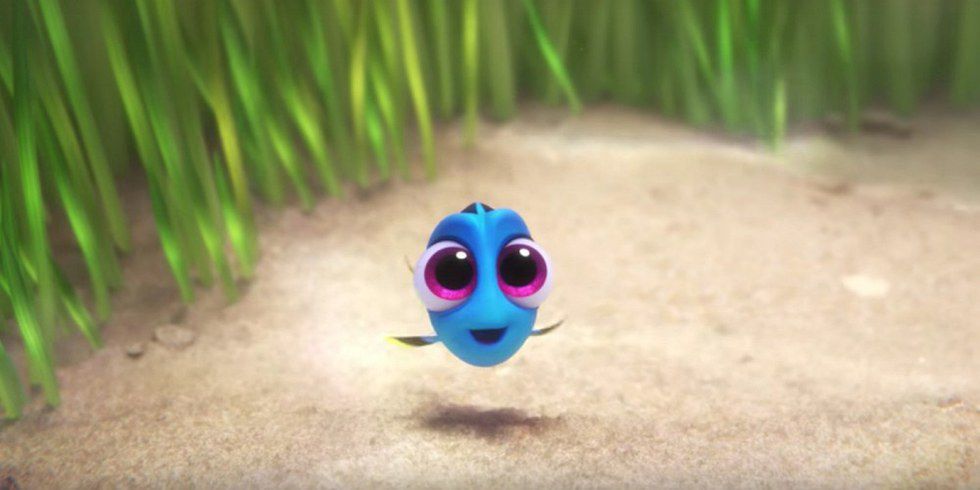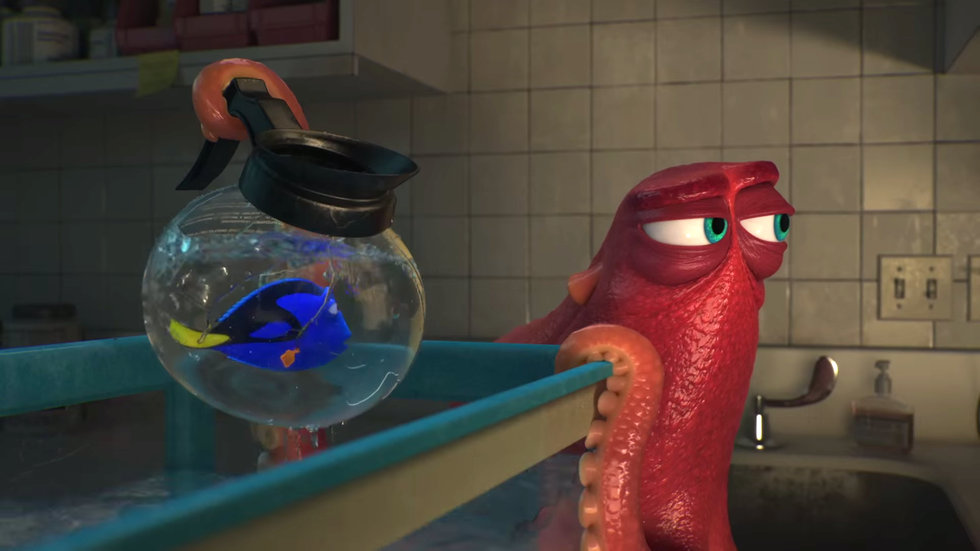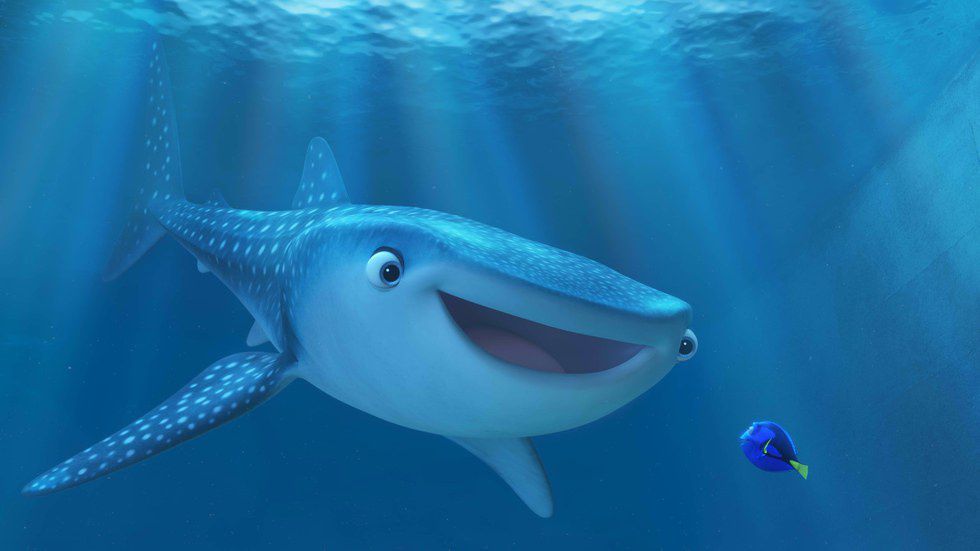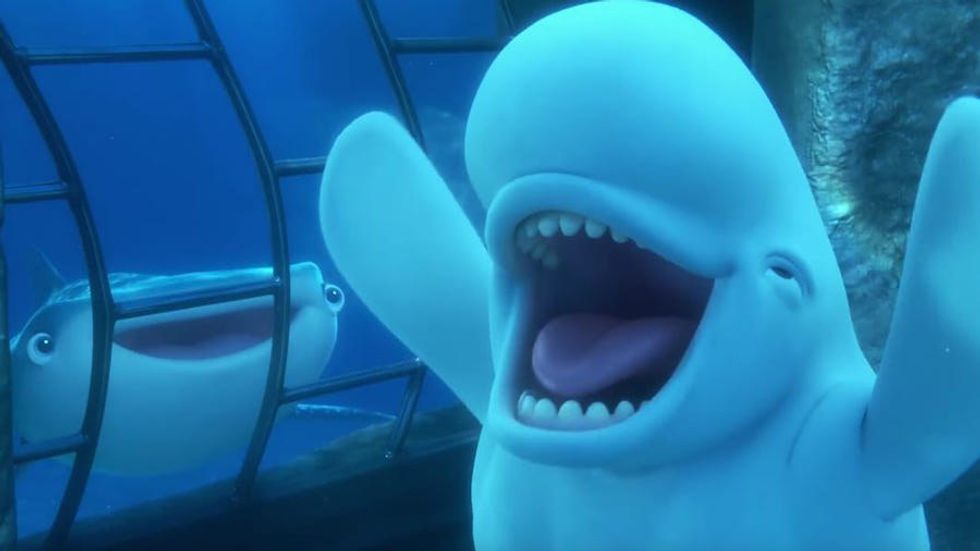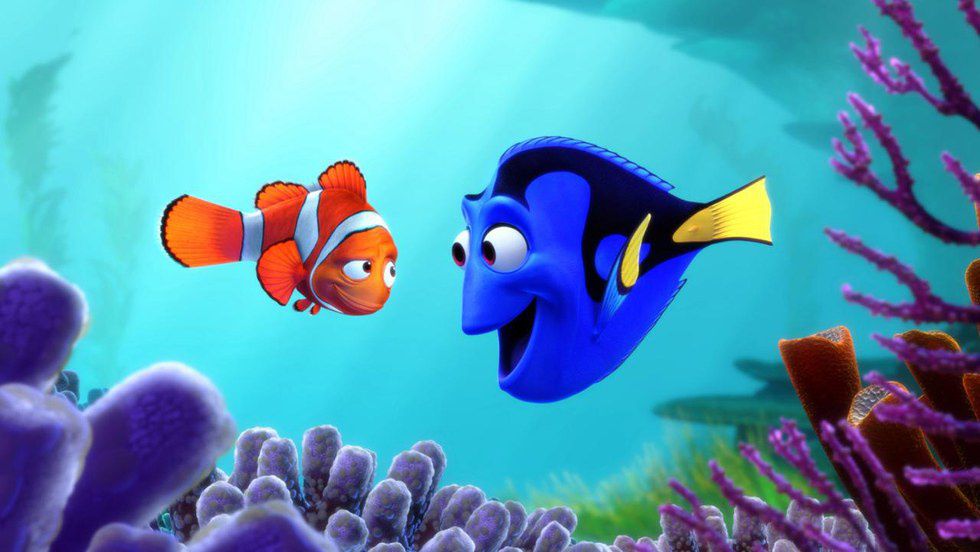The moment I learned that they were making a sequel to “Finding Nemo,” I was ecstatic. Dory is a character that we all fell in love with during our childhoods in 2003. But while watching “Finding Dory” as an adult, I realized that the plot was teaching kids that it’s okay to live with a mental disorder. ‘Finding Dory’ is all about the acceptance of mental foibles and working past what others might think by believing in themselves.
Dory suffers from short-term memory loss. The opening scene of the movie features Dory as a young fish learning how to explain to others about her illness. This situation is prevalent to any child who suffers from a mental or physical disorder. When questioned by adults, what do you say? The one thing that Dory’s parents want to make sure of is that she can say is: “My name is Dory and I suffer from short-term memory loss.” When she is caught by the current and swept away from her parents, she’s hopelessly lost.
Being stranded at a young age (with her disorder) is the most heart-wrenching aspect of the movie. Swimming in circles and forgetting who she just talked to illustrates the very significant reality that people with this disorder face. Almost all of the characters that Dory meets along her journey to Marlin and eventually back home have psychological illnesses that are subtle, yet prominent parts of their lives.
Along her journey, Dory meets Hank, the octopus. At first glance, you wouldn’t think that this character represents a mental illness. Upon hearing this octopus talk, I realized that he suffers from depression. He is afraid of social situations, he prefers to sit alone and dreams of living by himself, he is very shy and almost everything that he says is negative. He is exhibiting some of the most common symptoms of depression. Some of the things that Hank says clearly illustrate to kids what it’s like to be so lonely and living with depression. At the end, however, Hank is able to shake his fears and gain courage. Hank demonstrates that depression can be treated--especially with the true support of loving friends.
‘Destiny’ is a character that Dory maintains a long distance friendship with in her aquarium world. Destiny, however, suffers from far-sightedness. While this isn't a psychological disorder, it still represents a common problem experienced by millions. When objects are very close to her face she often bumps into them and is disoriented. This teaches children that having eyesight deficiencies is OK. The characters in this movie are not perfect, but they are all special and work towards moving past their physical challenges.
Another whale friend of Dory’s, ‘Bailey’, has lost his echolocation. Destiny informs that Dory that he in fact can use his echolocation (from what the doctors have said) however, he believes he physically can’t do it. When thrown into the stressful situation of saving his friends, Bailey rises to the occasion. Low and behold, his echolocation does actually work. Bailey’s character represents anxiety--another all-too-common disorder. Bailey believes that he can’t use his echolocation, and is too anxious to try, therefore, he simply doesn’t put in effort. Once Bailey overcomes his anxiety, he is able to help his friends. I believe this encourages children to overcome their own anxiety and shows them that they have talents--they just need to believe in themselves.
The theme of “Finding Nemo” was acceptance. Nemo, being a handicapped fish, was able to overcome his fears of the spinning doors in the fish tank and being told that he “can’t” do things. Marlin was able to overcome his fear of the ocean. Both movies represent the arduous journey of a fish on a mission to find their family. The underlying message, however, is overcoming one’s own psychological setbacks to achieve greatness. In searching for their families, they find themselves.




